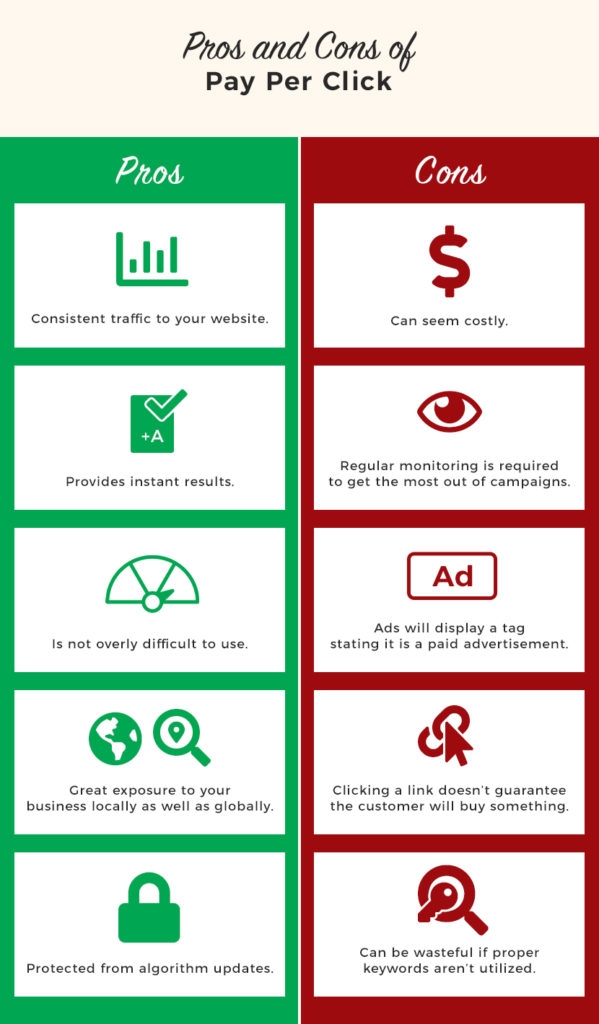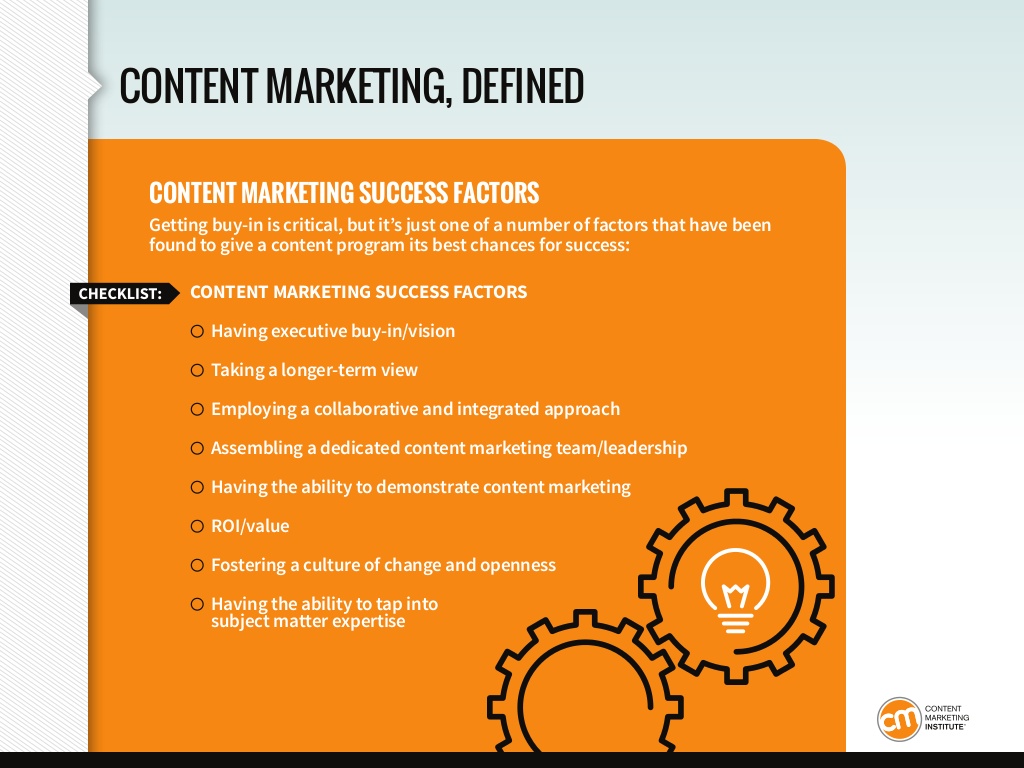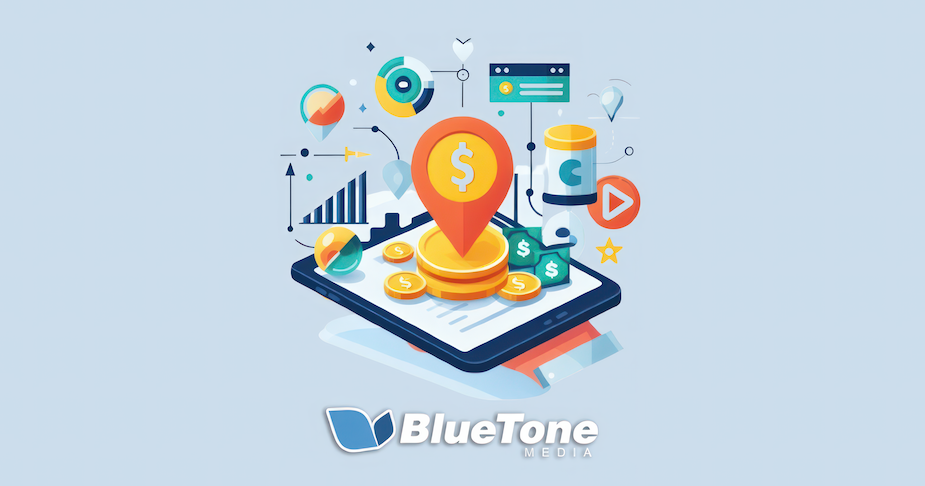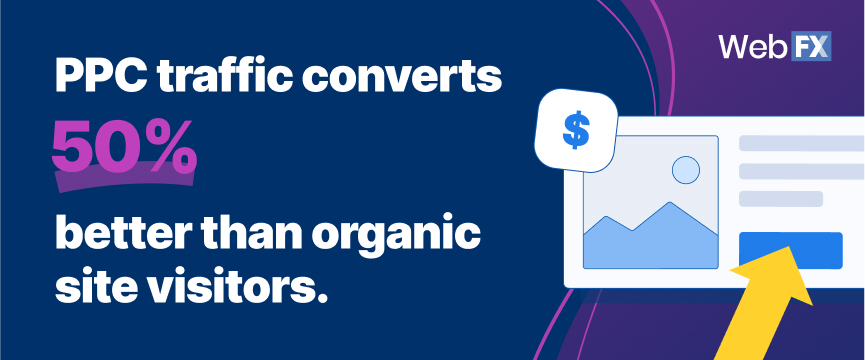Is Pay Per Click Traffic Worth it? Exploring the Advantages and Disadvantages of Buying PPC Traffic
Buy CPC Traffic | Buy Display Ads | Exclusive traffic sources | Buy Push Ads | Popunder ADS | Buy Native Ads | Buy Preroll Ads

Buy CPC Traffic | Buy Display Ads | Exclusive traffic sources | Buy Push Ads | Popunder ADS | Buy Native Ads | Buy Preroll Ads
Pay per click (PPC) advertising is a popular method used by businesses to drive traffic to their websites. With PPC, you only pay when someone clicks on your ad, making it a cost-effective way to reach potential customers. However, like any advertising strategy, there are pros and cons to consider before diving in.
One of the biggest advantages of buying PPC traffic is the immediate results it can deliver. Unlike traditional SEO efforts that can take months to see tangible results, PPC campaigns can start driving traffic to your website within hours. This makes it an ideal option for businesses looking for quick and measurable results.
In addition, PPC allows you to target specific keywords and demographics, ensuring that your ads are seen by the right audience. By choosing the right keywords and optimizing your campaigns, you can increase the chances of attracting highly relevant traffic to your website. This targeted approach can lead to higher conversion rates and a higher return on investment.
However, there are also potential drawbacks to buying PPC traffic. One major con is the cost involved. While PPC can be cost-effective, it can also become expensive if not managed properly. Bidding on competitive keywords can drive up the cost per click, and if you're not seeing a high conversion rate, you may end up spending more than you're earning.
Another potential downside is the level of competition in the PPC space. With so many businesses vying for the same keywords and ad placements, it can be difficult to stand out from the crowd. This means you'll need to invest time and effort into creating compelling ad copy and optimizing your campaigns to maximize your chances of success.
In conclusion, buying pay per click traffic can be a worthwhile advertising strategy for businesses, but it's important to weigh the pros and cons before getting started. With its immediate results and targeted approach, PPC can be a powerful tool for driving traffic to your website. However, be mindful of the potential costs and competition involved, and be prepared to monitor and optimize your campaigns to ensure they deliver the desired results.
Buying Pay Per Click Traffic: Advantages and Disadvantages

Pay Per Click (PPC) traffic is a popular way for businesses to drive targeted traffic to their websites. However, like any marketing strategy, there are both advantages and disadvantages to consider. Here are some of the pros and cons of buying PPC traffic:
Advantages:

Immediate Results: PPC campaigns can drive traffic to your website almost instantly. Once your ads are approved, they can start appearing in search engine results pages, and you can start getting clicks and conversions.
Targeted Traffic: With PPC, you can select specific keywords, demographics, and locations to target your ads. This allows you to reach the right audience who are more likely to be interested in your products or services.
Control and Flexibility: PPC platforms offer various features and settings that allow you to have control over your campaigns. You can set daily budgets, adjust bids, and make changes to your ads and targeting options whenever you want.
Measurable Results: PPC platforms provide detailed metrics and reports that allow you to track the performance of your campaigns. You can see how many clicks you're getting, which keywords are performing well, and how much you're spending on each conversion.
Disadvantages:

Cost: PPC can be expensive, especially if you're targeting highly competitive keywords. You need to carefully manage your budget and make sure your campaigns are generating a positive return on investment.
Competition: Since PPC is a widely used advertising method, there is often fierce competition for the top ad positions. This can drive up the cost of clicks and make it harder for your ads to reach the desired audience.
Learning Curve: Setting up and managing PPC campaigns requires knowledge and expertise. If you're new to PPC advertising, there may be a learning curve involved, and you may need to invest time and effort to optimize your campaigns for better results.
Ad Fatigue: Over time, users may become less responsive to your ads, especially if they see them repeatedly. This can result in lower click-through rates and conversions, requiring you to continually update and refresh your ads.
While buying PPC traffic has its advantages in terms of immediate results, targeted traffic, control, and measurable results, it also has its disadvantages, including cost, competition, a learning curve, and ad fatigue. It's important to carefully weigh these pros and cons and evaluate whether PPC is the right advertising strategy for your business.
Advantages of Buying Pay Per Click Traffic

1. Instant Visibility:
One of the biggest advantages of buying pay per click (PPC) traffic is the instant visibility it provides. When you invest in PPC campaigns, your ads can appear on top of the search engine results pages (SERPs) almost immediately. This means that you can start driving targeted traffic to your website in no time.
2. Highly Targeted Traffic:
With PPC advertising, you have the ability to target specific keywords, locations, demographics, and even devices. This means that you can reach your ideal audience who are actively searching for the products or services you offer. By delivering your ads to the right people at the right time, you can achieve a higher conversion rate and maximize your return on investment (ROI).
3. Flexible Budgeting:
Another advantage of PPC traffic is that you have full control over your budget. Unlike traditional advertising methods, PPC allows you to set a daily budget and bid on keywords based on your affordability. This flexibility gives you the ability to scale up or down your budget as needed, making it suitable for businesses of all sizes.
4. Measurable Results:
PPC advertising provides highly measurable results, allowing you to track the performance of your campaigns. You can easily monitor the number of clicks, impressions, conversions, and the cost per click. These metrics give you valuable insights into the effectiveness of your ads and help you make data-driven decisions to optimize your campaigns for better results.
5. Quick Testing and Optimization:
With PPC traffic, you can quickly test different ad copies, headlines, landing pages, and even A/B test different strategies. This allows you to identify what works best for your target audience and make necessary optimizations to improve your campaign performance. By continuously testing and optimizing your ads, you can increase your chances of success and drive more qualified traffic to your website.
Conclusion
In conclusion, buying pay per click traffic offers numerous advantages for businesses looking to increase their online visibility and drive targeted traffic to their website. With instant visibility, highly targeted traffic, flexible budgeting options, measurable results, and quick testing and optimization capabilities, PPC advertising can be a worthwhile investment for businesses of all sizes.
Disadvantages of Buying Pay Per Click Traffic
While buying pay per click (PPC) traffic can have its advantages, there are also several disadvantages to consider. It is important to carefully weigh the pros and cons before deciding if purchasing PPC traffic is the right strategy for your business or website. Some of the main drawbacks of buying PPC traffic include:
Cost: PPC advertising can be expensive, especially if you are targeting competitive keywords or popular websites. The cost per click (CPC) can vary widely depending on the platform and niche you are targeting. Additionally, you may not see immediate results, requiring ongoing budget allocation to maintain traffic levels.
Limited long-term benefits: Unlike organic traffic, which can provide ongoing benefits for your website or business, PPC traffic tends to be short-lived. Once you stop paying for clicks, the traffic will stop, and it may not lead to long-term conversions or customer engagement.
Click fraud: Click fraud is a concern when purchasing PPC traffic. Some unscrupulous publishers or websites may engage in click fraud, artificially inflating the number of clicks without genuine user engagement. This can result in wasted ad spend and skewed advertising analytics.
Quality of traffic: The quality of traffic from PPC campaigns can vary. While some campaigns may drive highly targeted and engaged visitors to your website, others may generate low-quality traffic that is not interested in your products or services. It is crucial to carefully target your campaigns and monitor the performance to ensure you are attracting the right audience.
Competition: PPC advertising is a competitive space, especially for popular keywords and industries. Bidding wars can drive up the cost per click and make it difficult to maintain a profitable return on investment. It is important to have a well-planned strategy and continually optimize your campaigns to stay ahead of the competition.
In conclusion, while buying PPC traffic can generate immediate results and increase visibility, there are several disadvantages to consider. It is crucial to evaluate your budget, long-term goals, and the quality of traffic before investing in PPC advertising. Additionally, exploring native traffic sources can provide alternative options to diversify your traffic acquisition strategy.
Is Pay Per Click Traffic Worth It?

Pay per Click (PPC) advertising is a popular marketing strategy that allows businesses to drive targeted traffic to their websites. With PPC, advertisers pay a fee each time their ad is clicked. While this method can be effective in driving traffic and generating leads, there are pros and cons to consider before investing in PPC traffic.
Pros
Immediate Results: One of the main advantages of PPC advertising is that it provides immediate results. Unlike organic search engine optimization (SEO), which can take months to show results, PPC allows you to start driving traffic to your site instantly after your campaign is launched.
Targeted Audience: PPC allows you to target a specific audience based on keywords, demographics, and other factors. This means that your ads will be shown to people who are more likely to be interested in your products or services, increasing the chances of conversion.
Measurable: PPC advertising provides detailed metrics and analytics that allow you to track and measure the performance of your ads. This data can help you optimize your campaigns, increase your return on investment (ROI), and make informed decisions for future advertising strategies.
Flexible Budget: With PPC, you have full control over your advertising budget. You can set daily or monthly spending limits, pause or adjust campaigns at any time, and allocate your budget to the best-performing ads or keywords. This flexibility allows you to optimize your spending and maximize your results.
Cons
Cost: PPC advertising can become expensive, particularly for highly competitive keywords. The cost-per-click (CPC) can vary depending on the industry and the level of competition, making it necessary to carefully analyze and manage your budget to achieve a positive ROI.
Requires Expertise: While PPC platforms offer user-friendly interfaces, running successful PPC campaigns requires knowledge and experience. There are many factors to consider, such as keyword research, ad copywriting, bid management, and campaign optimization. Investing time and resources in learning and staying updated with PPC trends is necessary for achieving optimal results.
Click Fraud: PPC advertising is not immune to click fraud, which is the act of artificially inflating clicks on an ad to drain the advertiser's budget. This can result in wasted ad spend and lowered ROI. Employing click fraud prevention measures and monitoring your campaigns regularly can help mitigate this risk.
Ultimately, the effectiveness of PPC advertising will depend on your specific business goals, target audience, and available resources. While PPC can deliver immediate and targeted traffic, it requires careful planning, continuous monitoring, and ongoing optimization to ensure a positive return on investment.
Factors to Consider Before Buying Pay Per Click Traffic

When considering the purchase of pay per click (PPC) traffic, there are several factors to take into account that can greatly impact the success and value of your investment. Before making a decision, it is important to carefully evaluate the following aspects:
Target Audience

Understanding your target audience is crucial when purchasing PPC traffic. It is essential to consider the relevancy and quality of the traffic you will be receiving. Different traffic sources might have varying levels of targeting options, so it is important to choose a source that can provide you with traffic that aligns with your target audience's interests and demographics.
Budget and ROI

Evaluating your budget and return on investment (ROI) is vital before buying PPC traffic. Determine how much you are willing to spend and assess the potential profitability of your campaign. By setting realistic goals and calculating the potential revenue or conversions, you can better gauge the value of the traffic you will be buying.
Source of Traffic
It is crucial to consider the source of the PPC traffic you are purchasing. Some sources may utilize native traffic sources sources, while others may rely on search engine ads or social media ads. Each source has its benefits and drawbacks, so it is important to do thorough research and choose a source that aligns with your goals and requirements.
Competition and Niche

Assess the level of competition within your niche before buying PPC traffic. If your niche is highly competitive, it may be more challenging to achieve desired results. Evaluate the competitiveness of relevant keywords and the potential cost per click (CPC) to determine if it aligns with your budget and goals.
Target Audience
- Relevant traffic increases conversion rates
- Better engagement and ROI
- Increased chances of customer acquisition
- May require more research - Potential limitations in targeting options
Budget and ROI
- Allows for budget control - Potential to generate high ROI
- Initial investment required - Financial risk if not carefully managed
Source of Traffic
- Various traffic sources available - Opportunities for unique targeting options
- Different sources have varying quality of traffic - Potential limitations in reach and targeting
Competition and Niche
- Targeted traffic can increase competitiveness - Potential to gain an edge in a competitive market
- High competition may lead to higher CPC - Challenging to stand out in a crowded market
Considering these factors before buying PPC traffic can help you make an informed decision and maximize the potential success of your ad campaign. Take your time to research and choose the best option for your business objectives and budget.
What is pay per click traffic?
Pay per click traffic refers to a type of online advertising model where advertisers pay a fee each time their advertisement is clicked on by a user. It is a way to drive traffic to a website or landing page by purchasing clicks from search engines or other online platforms.
What are the pros of buying pay per click traffic?
There are several advantages of buying pay per click traffic. Firstly, it allows for immediate results, as ads can be set up and launched quickly. Secondly, it offers a high level of targeting, allowing advertisers to reach their desired audience. Thirdly, pay per click traffic enables advertisers to have more control over their campaigns, with the ability to adjust budgets, keywords, and ad copy. Finally, pay per click can provide valuable data and insights on user behavior and conversion rates.
What are the cons of buying pay per click traffic?
Despite its benefits, there are also some drawbacks to buying pay per click traffic. Firstly, it can be expensive, especially for competitive keywords and industries. Advertisers have to continuously monitor and optimize their campaigns to ensure they are getting a positive return on investment. Additionally, pay per click traffic can sometimes generate low-quality leads or irrelevant clicks, resulting in wasted ad spend. Lastly, there is a learning curve to effectively manage pay per click campaigns, so it may require time and expertise to see successful results.
Can pay per click traffic be worth it for small businesses?
Yes, pay per click traffic can be worth it for small businesses. It offers a level playing field, allowing small businesses to compete with larger companies in the online advertising space. With careful planning, budgeting, and targeting, small businesses can effectively reach their target audience and generate leads or sales. However, it is important for small businesses to have a clear strategy and realistic expectations, as pay per click can be competitive and requires ongoing effort to be successful.
Are there any alternatives to buying pay per click traffic?
Yes, there are alternatives to buying pay per click traffic. Some other popular online advertising models include display advertising, where image or banner ads are displayed on websites or apps, and native advertising, where ads are seamlessly integrated into the content of a website or platform. Social media advertising is also a popular option, with platforms like Facebook and Instagram offering targeted advertising options. It is important for advertisers to research and consider their options to find the best fit for their goals and budget.
What is pay per click traffic?
Pay per click traffic refers to a digital advertising model where advertisers pay a fee each time their ad is clicked on by a user. This type of advertising is commonly used in search engines, social media platforms, and other online advertising networks.
What are the pros of buying pay per click traffic?
There are several pros of buying pay per click traffic. Firstly, it allows for immediate results as you can start driving traffic to your website as soon as your ads are live. Additionally, it provides targeted traffic, meaning you can specify your target audience and ensure your ads are being seen by the right people. Pay per click traffic is also highly measurable, allowing you to analyze the success of your campaigns and adjust accordingly.
Are there any cons to buying pay per click traffic?
Yes, there are a few cons to buying pay per click traffic. Firstly, it can be quite expensive, especially for highly competitive keywords or industries. Additionally, click fraud is a concern, as competitors or bots may click on your ads without any actual interest in your product or service. Furthermore, managing pay per click campaigns can be time-consuming and requires a good understanding of the advertising platform.
Is buying pay per click traffic worth it?
The worthiness of buying pay per click traffic depends on various factors. It can be worth it if you have a well-defined advertising strategy, a good budget, and a thorough understanding of the platform you are using. It can generate immediate traffic and provide targeted results. However, it may not be worth it if you have a limited budget or if your target audience does not use the platforms where pay per click advertising is prevalent. Ultimately, it is important to evaluate the pros and cons and determine if it aligns with your marketing goals.
Buy CPC Traffic | Buy Display Ads | Exclusive traffic sources | Buy Push Ads | Popunder ADS | Buy Native Ads | Buy Preroll Ads
2022-2024 @ The Pros and Cons of Buying Pay Per Click Traffic: Is It Worth It?